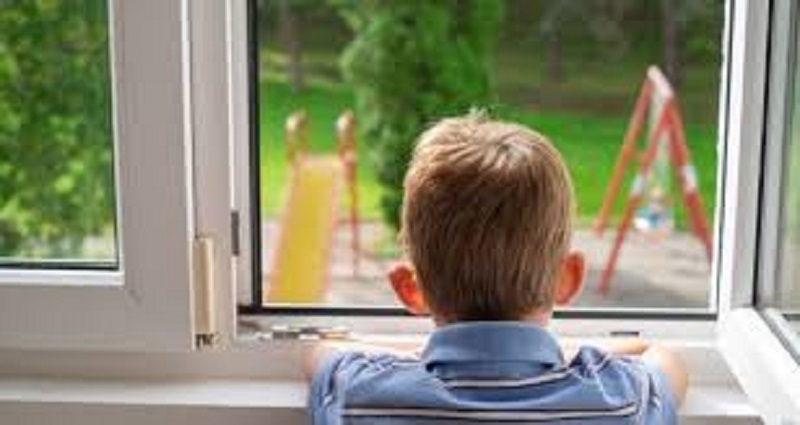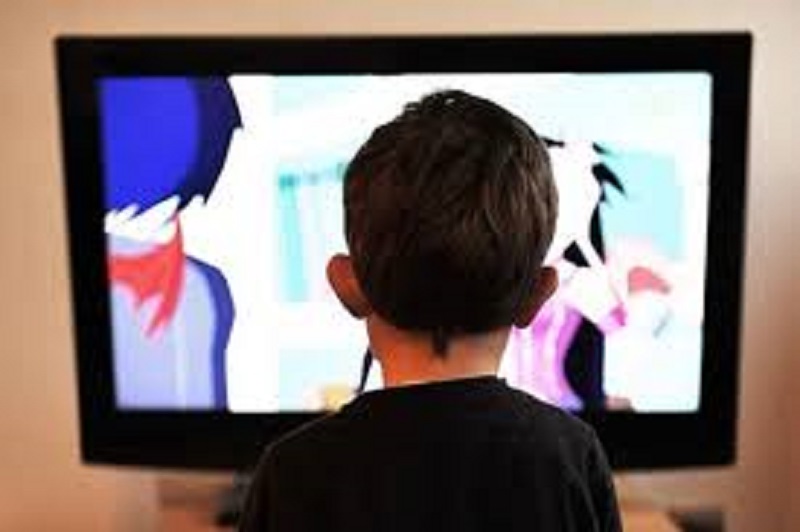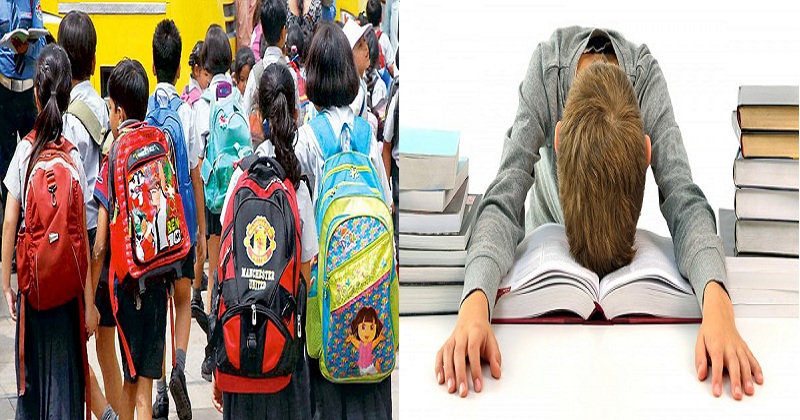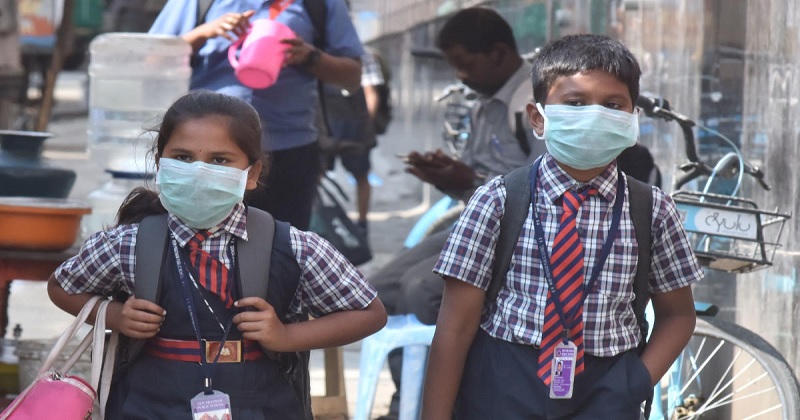
12 year old Rahul has not been out of his house in the last 17 months except to visit his cousin living in the neighbourhood once in a while, that too after adhering to covid protocol strictly. His cousin, two years senior, is also very vigilant in maintaining safe distance and that they do not engage in any games as they did months before. Being cautious and also scared of the coronavirus pandemic, Rahul would leave the house quickly before coming closer to other members of the family.
Rahul is studying in the seventh standard. He has not seen his school and has not met the teachers as well as classmates since the lockdown was imposed on March 23 last year. Initially, he could not comprehend the implementation of new rules restricting most of the activities of people, including closing down of educational institutions.

Rahul is good in his study and loves games as well. Other than classmates and school friends, what he misses very much are the games he used to play with others in the school playground. Since Covid outbreak, the only people he meets day in and day out are his parents and siblings. In all respects, his world has been reduced to his house along with a desktop computer or a smartphone.
Within weeks of the new order, he tried hard under pressure and succeeded in getting along with the new ways, understanding that there was no other option to continue with schooling. But within months his look and conduct began to display a deep sense of loss and disappointment. Instead of making complaints and throwing a tantrum in the house, he has always appeared quiet and withdrawn.
Also Read: Afghanistan’s engagement with the IMF is suspended
In fact, there are thousands of school students like Rahul going through similar state of mind or more hardships during the pandemic period. The impact of the pandemic-induced lockdown has spared none. Children, grownups and the elderly have their share of suffering. While the poor children are affected with malnutrition and other serious health issues. The elderly are afflicted with feelings of insecurity, uncertainty and anxiety related health problems. Adults on the other hand suffer stress and anguish due to loss of livelihoods and economic downturn. A feeling of helplessness and the resultant frustration have often led to domestic violence and even breakups in relationships.
In the Covid-disrupted life, it is learnt, incidences of violence against women and children, family discords and sexual abuses have increased manifold. In Kerala, more than 1,600 cases of violence against children at home have been reported from January to May 2021.

School children are the most affected in the disruption of families. They have been both mentally and physically challenged in the wake of the pandemic crisis, which has created anomie, impacting unexpected changes in their lives. Their mental and physical wellbeing has been under strain. The transition from classroom study to the online platform for the academic purpose alone has adversely affected them.
It is a fact that the young minds are yet to adapt to the new norms and regulations imposed upon them by parents, teachers and above all the authorities. There are noticeable changes in the attitude and behaviour of school children, find clinical psychologists who have studied individual and groups through interaction and observation.
Though depression has been the common mental disorder among college students during the time, school students generally are not subject to depression, rather they seem to be more aggressive and each reacts differently to this peculiar situation.

Psychologists say many students between 12 and 17 years of age have become indifferent within the family environment after the initial opposition and disgust over the familial disorder and rapid transformation in everything around them. Strangely, some psychologists find, there are students who now appear not keen on study, play or any other activity and not impressive on anything other than video games. Some have even expressed their dislike to go back to school after its reopening as they have already created an illusionary world of electronic gadgets and found solace in it.
Smartphones have played a critical role in health, behavioural patterns and habits of children. After March 2020, smartphones have emerged as an inevitable tool for virtual classes. It has been proved that excess use of smartphones takes a heavy toll on their mental and physical health, which causes daytime sleepiness, tiredness, headache, irritability, obesity etc.
A study conducted in urban areas has found that an estimated 45 percent of the children have sleeping difficulty due to addiction to electronic devices and reduced physical activities. The study shows school children usually spend around five hours a day on these devices and as a result, their linguistic skills and power of critical and analytical thinking are affected.

Mental and physical hazards due to excess use of electronic devices, especially smartphones, need to be addressed urgently. Several instances have been reported in which children display anger, uncontrollable crying and disobedience to their parents in case they are forced to put down their favourite electronic devices.
Complaints against school children are pouring in every day from anxious parents citing their wards’ lack of concentration in study, short memory, disrespect to teachers, absence of orderliness, inappropriate response, general discontentment etc., say doctors attending to children’s mental health issues.
Research shows that violence in video games can have a long-term/short-term impact on children’s thinking, emotions and behaviour. Nomo phobia, psychological dependence on mobile devices whereby users exhibit symptoms the same as drug addiction, are widely reported.
The recent cases of suicides among school students in Kerala are quite alarming. Social psychologists find stressful life events, mental health conditions, family environments and economic crisis are major risk factors for suicidal behaviour among children. All these risk factors have peaked during
the lockdown.

Besides, loneliness, poor social support and fewer social relationships are also found to be the important reasons for suicidal tendency among children. It has been recorded that altogether 377 children have committed suicide in Kerala alone in the lockdown period. Of them, 324 were under 18 years of age, according to the State Crime Records Bureau (CRB). The CRB points out a number of the victims were good in study and the most were
living with parents.
Children between 15 and 18 years are the most vulnerable, it shows. A study on these incidents has remarked that inadequate support systems within the families could be the cause of a situation leading to the extreme steps.
Remedial measures addressing negative thoughts in the young minds are critical in this juncture. The growing suicide tendency calls for collective efforts of the community leaders, parents, teachers, school group leaders etc., to intervene effectively at the individual, family and community levels in order to stem the menace at the right time.
By: KS Rajagopal

Post Your Comments